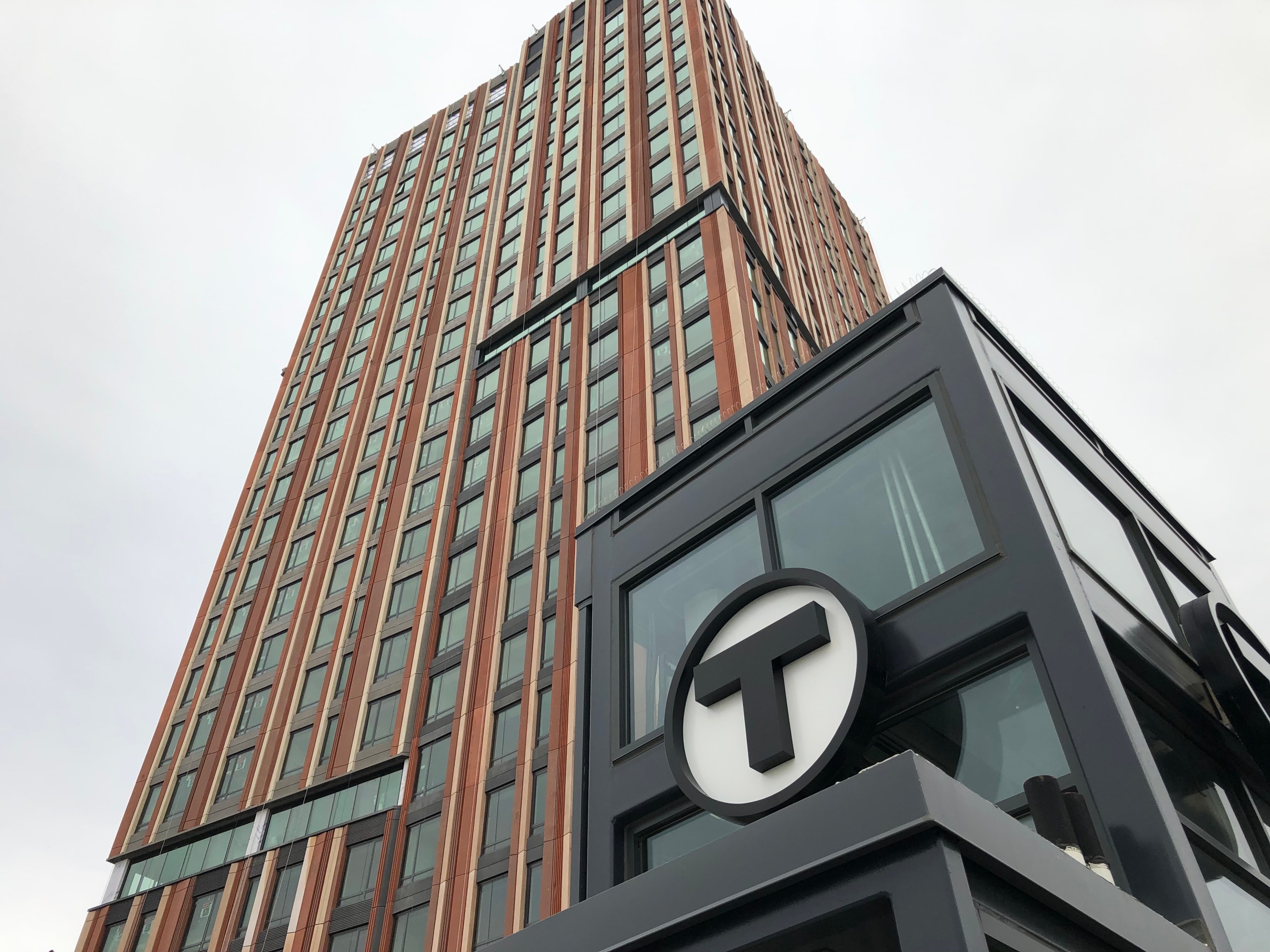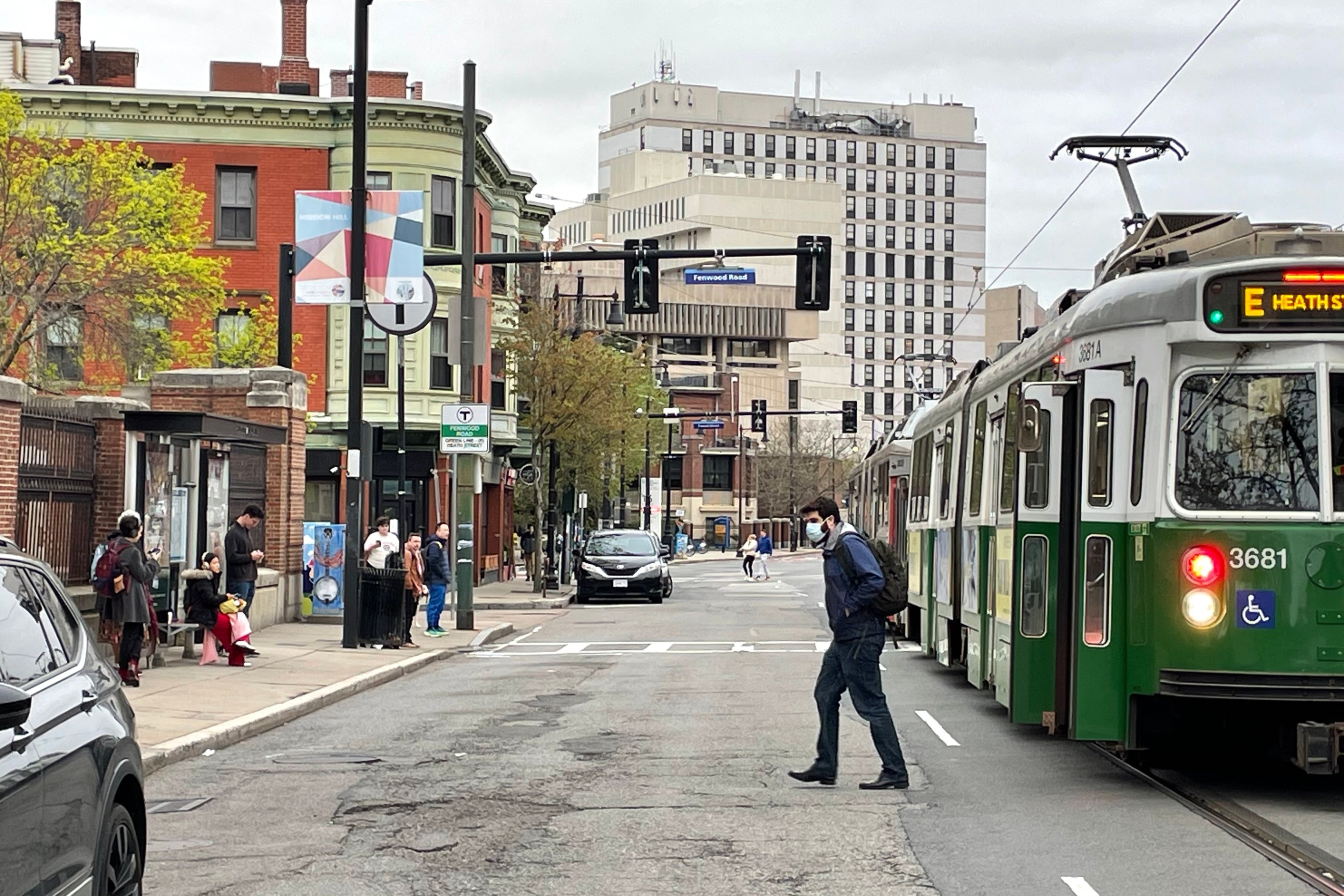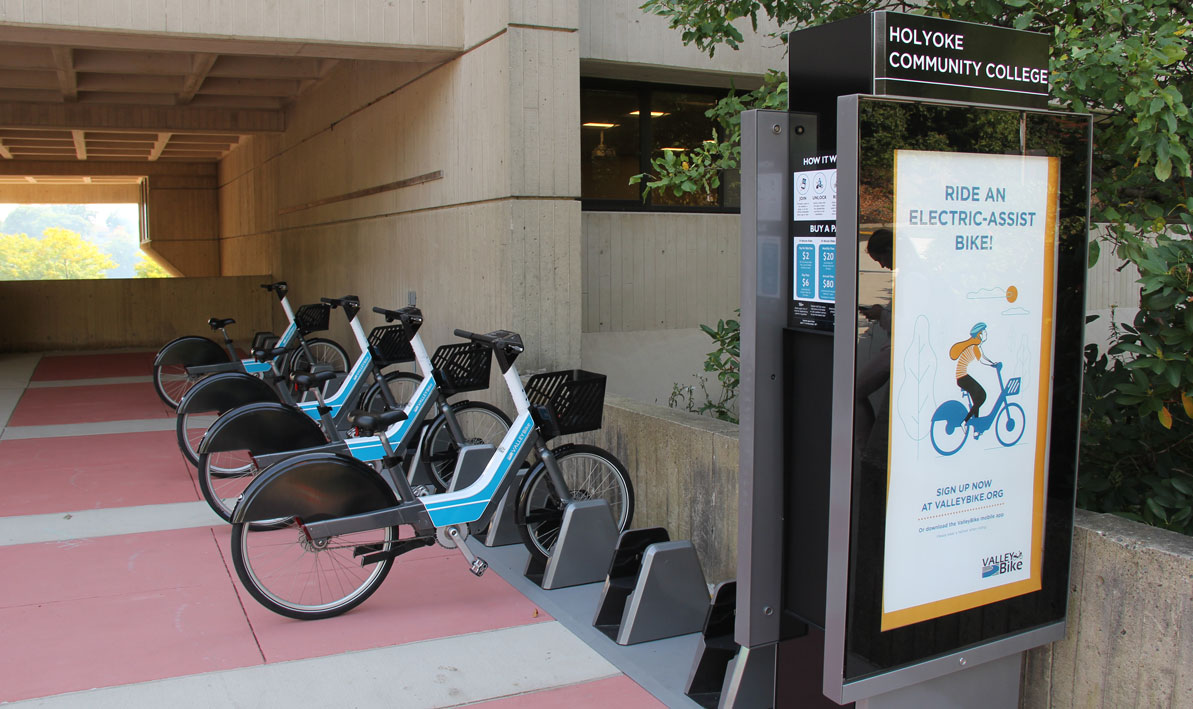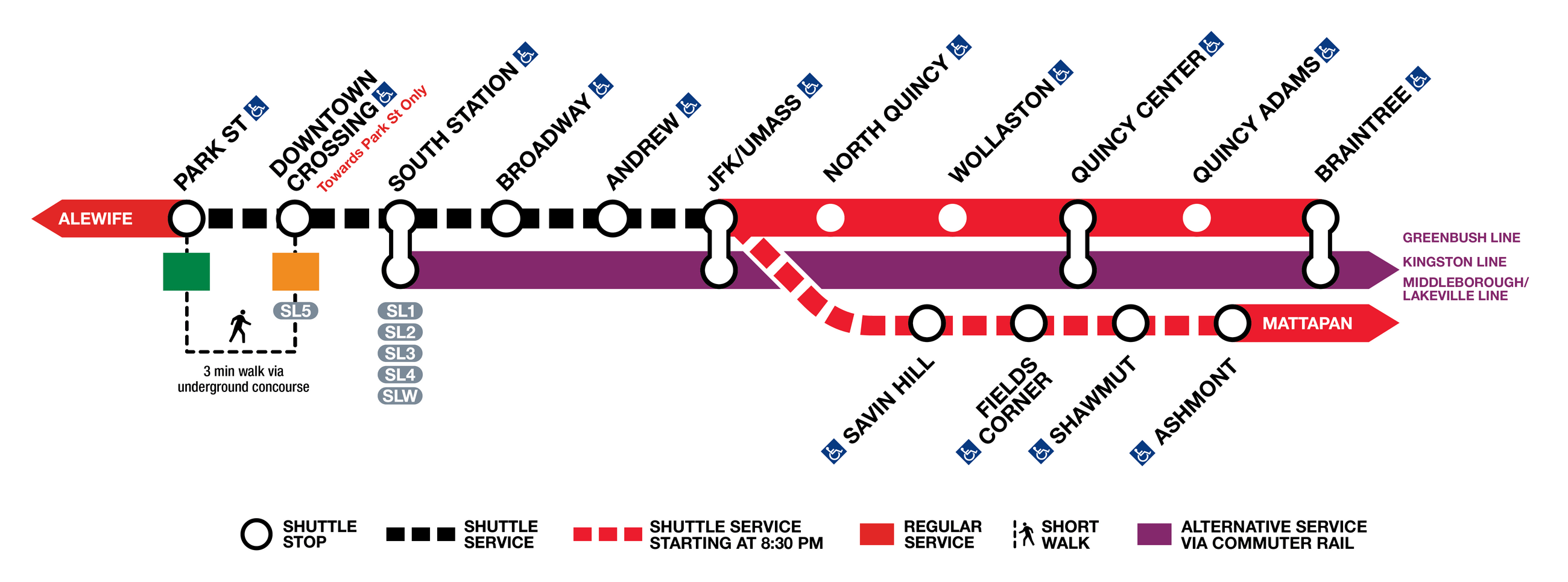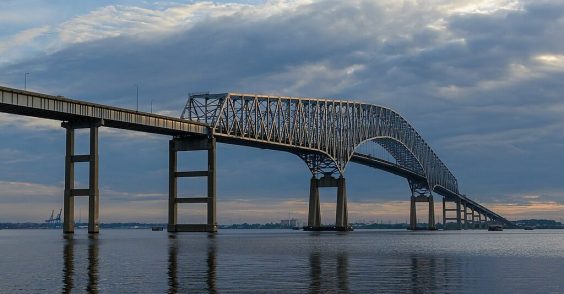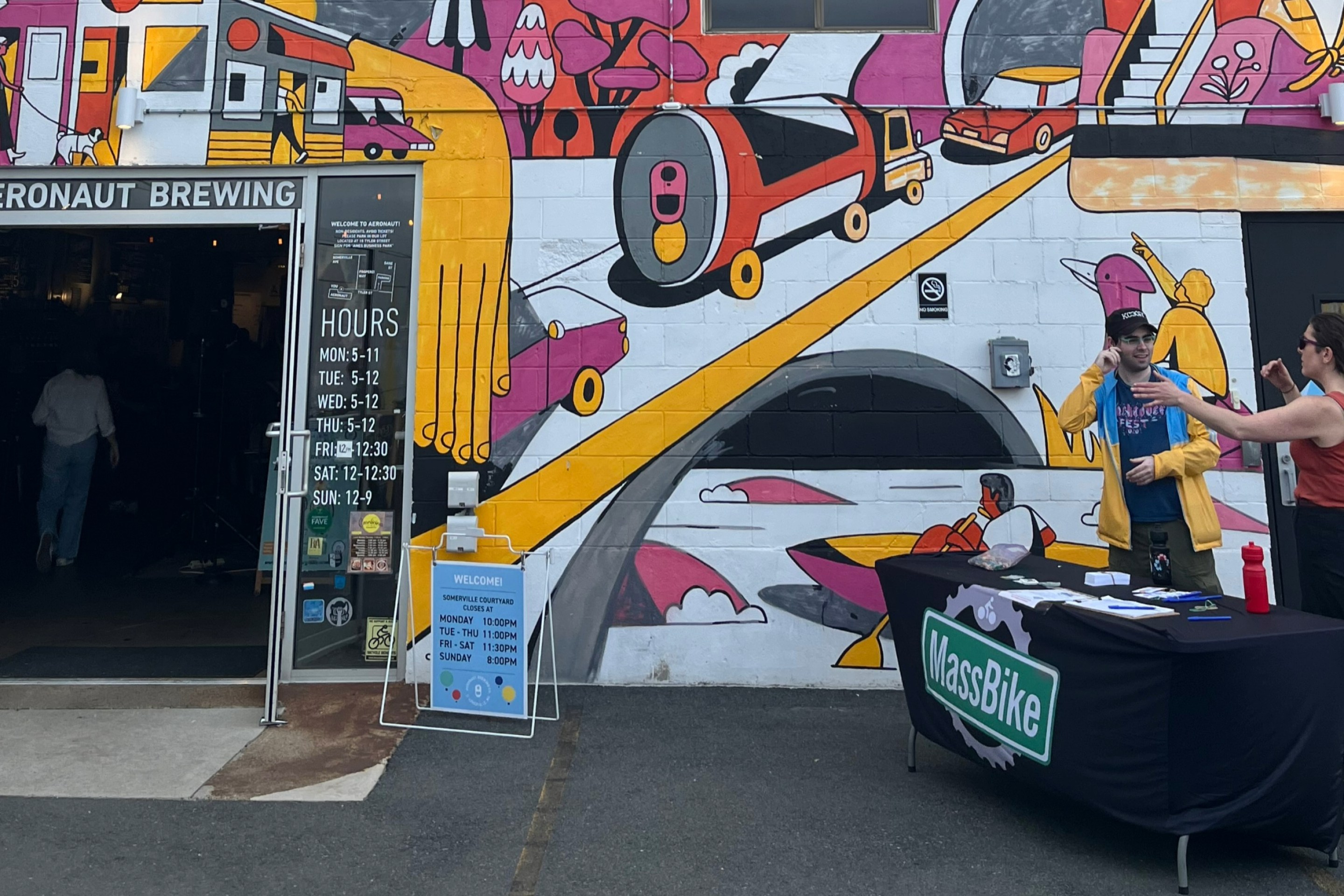On Monday, Massachusetts Attorney General Andrea Campbell issued an advisory to warn cities and towns across eastern Massachusetts that they "must comply" with the state's new MBTA Communities Law by legalizing multifamily housing near MBTA bus routes and rail stations.
Where many of Boston's suburbs currently only allow single-family homes with large lawns, the new law will require new zoning districts “of reasonable size,” and generally within a half-mile of transit stops, where builders would be allowed to construct at least 15 homes per acre.
A handful of officials in some of the region's most exclusionary communities have talked about simply defying the law in public meetings.
Towns that do not comply would no longer be eligible for certain state funding programs, like MassWorks infrastructure grants.
However, many of the state's wealthiest communities don't receive that funding anyhow.
At a virtual public meeting in January, Harvey Boshart, a Weston Select Board member, argued that “as it currently stands, we’re not giving up anything” if the town chose not to comply.
Weston has three MBTA regional rail stations within its boundaries. Its median home price is currently over $2.5 million and its well-heeled residents are notorious for exploiting zoning and environmental laws to keep poorer renter households out of their community.
In the nearby City of Newton, which has even more transit service, City Councilor Marc Laredo mused in a January 2022 public meeting that the law "creates significant issues for us in limiting our ability to manage and control what gets built here... And I think we need to weigh that against what in my mind is a very small amount of (state) funding at stake.”
Attorney General Campbell's legal advisory quashes those arguments.
"MBTA Communities cannot avoid their obligations under the Law by foregoing this funding," states the Attorney General's advisory. "The Law requires that MBTA Communities 'shall have' a compliant zoning district and does not provide any mechanism by which a town or city may opt out of this requirement."
Attorney General Campbell – whose 2022 election campaign focused on racial disparities in wealth, policing, and education – also warned suburbs against preserving zoning laws that perpetuate racial segregation across the region:
MBTA Communities that fail to comply with the Law’s requirements also risk liability under federal and state fair housing laws. The Massachusetts Antidiscrimination Law and federal Fair Housing Act prohibit towns and cities from using their zoning power for a discriminatory purpose or with discriminatory effect. An MBTA Community may violate these laws if, for example, its zoning restrictions have the effect of unfairly limiting housing opportunities for families with children, individuals who receive housing subsidies, people of color, people with disabilities, or other protected groups.
Iván Espinoza-Madrigal, the executive director for Lawyers for Civil Rights in Boston, issued a press statement on Wednesday to commend Attorney General Campbell "for her decisive leadership on this important issue."
"Municipal compliance with the MBTA Communities Law is critical to combating Massachusetts’ affordable housing crisis... If towns don’t comply, they will face litigation brought by (Lawyers for Civil Rights). With the advisory now in effect, recalcitrant towns now also face civil enforcement action from the Attorney General’s office," wrote Espinoza-Madrigal.
Under the the state's rules, inner-core cities and towns on and immediately adjacent to the MBTA's rapid transit network – places like Newton, Cambridge, Brookline, Everett, and Braintree – have until the end of 2023 to implement new zoning rules and verify compliance with the state's Department of Housing and Community Development.
Other municipalities on the commuter rail network, including towns like Weston, will have until the end of 2024.
